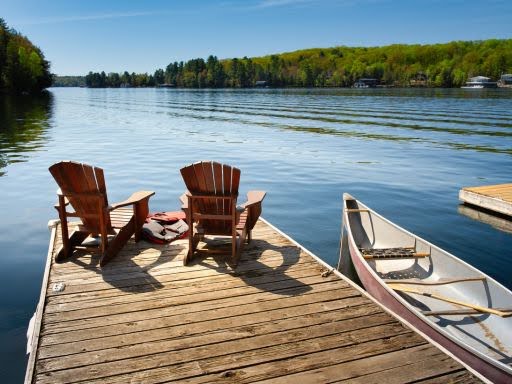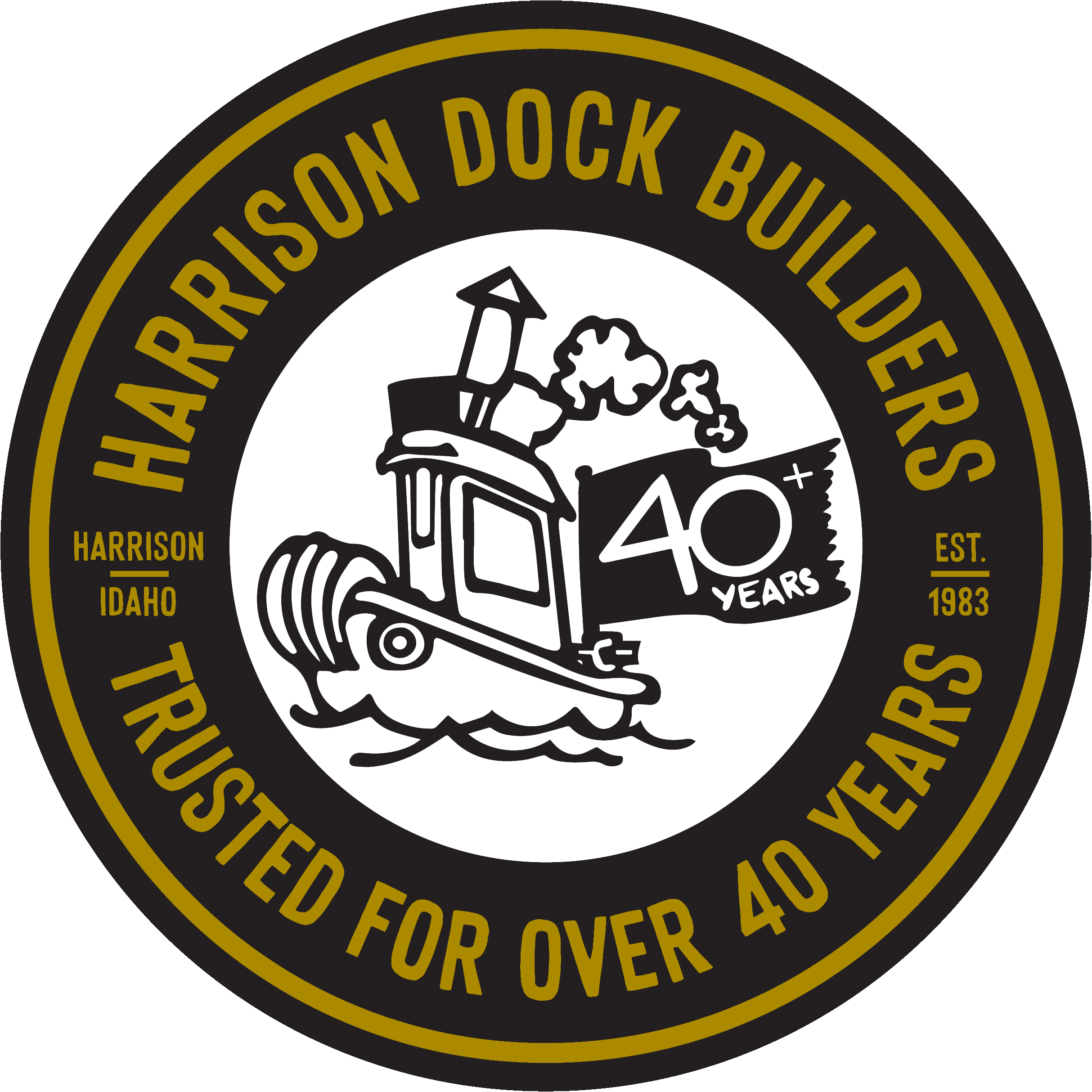
Building a dock can be exciting, but many wonder if they need a permit. In fact, most waterfront projects including docks require some form of permission.
This article will guide you through understanding and obtaining the necessary permits to make your dream dock a reality.
Stay with us to learn more!
Understanding Dock Permits
You need a permit to build a dock. Owners of waterfront properties must obtain the necessary permits before proceeding with construction.
Why do you need a permit?
Getting a dock permit ensures that your construction project aligns with local regulations and state laws. This step is crucial to avoid legal issues and fines associated with unauthorized structures on waterfront property.
Permits help protect the environment by ensuring that your dock does not harm local wildlife or disrupt the ecosystem. Local governments require them to maintain order, safety, and environmental standards in outdoor projects involving water bodies.
By obtaining the necessary permits, you also safeguard your investment into the project. Compliance with dock permit policies helps ensure that your dock meets structural safety standards, reducing risks of damage or accidents.
It also serves as a formal agreement between you and regulatory authorities, outlining what is permitted on your property regarding building docks or floating docks.
Who needs a dock permit?
Now that we’ve covered why a permit is crucial for building a dock, let’s move on to understanding exactly who needs to secure this permission. Essentially, anyone planning to install a private dock at their waterfront property must obtain a dock permit.
This includes homeowners looking to add value and convenience to their homes with access for boating or swimming. Similarly, if you’re part of a homeowner association (HOA) aiming to build communal docking facilities for residents, securing permits becomes mandatory before any construction begins.
Additionally, businesses situated along shorelines intending to provide docking services or enhance their premises with boat access also fall under the requirement for obtaining relevant permits.
These regulations ensure that all proposed constructions align with environmental standards and do not infringe upon public rights or cause harm to aquatic ecosystems. Whether you are an individual homeowner or represent an organization, checking with local ordinances and understanding your state’s regulations regarding submerged land is the first step towards legally constructing your desired dock.
Common requirements
Owning a dock comes with its own set of rules and regulations. Every prospective dock owner must understand these requirements before jumping into the building process. Here’s what you generally need:
- Detailed Plans: Authorities often request a comprehensive plan for your proposed dock. This includes dimensions, materials, and how you intend to build it.
- Environmental Assessments: Some areas require an environmental impact study to ensure that building a dock won’t harm local ecosystems.
- Property Lines: Clearly define your property boundaries. Building even slightly outside these lines can lead to legal issues with neighboring properties.
- Water Depth Measurements: Certain areas have specifications on how deep the water needs to be for a dock to be built safely.
- Approval from Neighbors: In some cases, especially in tight-knit communities or areas governed by homeowners’ associations (HOAs), you may need consent from your neighbors or the HOA board.
- State and Local Permits: Beyond just a basic building permit, docks often need special permits due to their impact on waterways and coastlines.
Understanding these common requirements paves the way for a smoother permitting process and helps ensure that your boat dock meets all necessary criteria for safety, legality, and environmental friendliness.
The Permitting Process
Research state regulations by checking the specific requirements for dock permits. Local governments and HOAs should be contacted to ensure compliance with their regulations, in addition to obtaining necessary permits.
Research state regulations & dock permit requirements
Before building a dock, it is crucial to research state regulations. Each state has specific rules and requirements for obtaining permits to construct a dock on your waterfront property.
These regulations may include guidelines for the size, location, environmental impact, whether it’s a floating dock, and safety standards of the proposed dock. Understanding and complying with these state regulations is essential in ensuring that your project moves forward smoothly without encountering legal issues down the line.
Additionally, consulting with local authorities or relevant government agencies can provide valuable information regarding any specific permits or approvals required in your area. By thoroughly researching these state regulations and obtaining the necessary permits, you can navigate the permitting process more efficiently while avoiding potential setbacks.
Check with local governments and HOAs
Before moving ahead to the next step, ensure you check with local governments and HOAs about any specific regulations or permits needed for building a dock. This may include zoning restrictions, environmental considerations, and guidelines related to water access.
Local ordinances and homeowner association rules can greatly impact your dock construction project, so it’s important to address these aspects early in the process.
Consider reaching out to your local government offices or speaking with representatives from the homeowner association to understand the requirements and obtain any necessary permissions before proceeding further.
Obtain necessary permits
Before constructing a dock, it’s crucial to obtain the necessary permits. Start by researching state regulations and then check with local governments and HOAs to ensure all requirements are met.
Obtaining the appropriate permits, such as state, federal, or local permits, is essential for a hassle-free building process.
Dive in! By obtaining these crucial permits upfront, you can avoid delays and legal issues down the line.
Factors to Consider When Building a Dock
Consider submerged land ownership, neighboring properties, and the types of permits needed. To understand all the critical factors in building a dock, keep reading!
Submerged land ownership
When building a dock, it’s essential to consider submerged land ownership. Checking property boundaries and consulting with the relevant authorities to confirm ownership of the underwater area where the dock will be installed is crucial.
Understanding who owns the submerged land will help in obtaining the necessary permits and prevent any legal issues related to property rights or encroachment.
Moving on to “Neighboring properties”, understanding how your neighbors may be impacted by your proposed construction can help ensure positive relationships within your community and avoid potential conflicts down the line due to lack of communication and consideration for their concerns.
Neighboring properties
When building a dock, consider the impact on neighboring properties. Be aware of setbacks and potential disturbance to adjacent landowners. Understanding property boundaries is crucial for avoiding disputes with neighbors.
Always communicate your building plans in advance with those who will be directly affected by the construction.
Considerate planning can help mitigate any potential concerns from neighboring properties when constructing a dock. Engaging in open dialogue and following local regulations can contribute to preserving good relations with nearby landowners while enhancing your waterfront property.
Types of permits needed (state, federal, local)
When building a dock, it’s crucial to obtain the necessary permits. Depending on the location and type of project, different permits may be required. Here are the types of permits needed:
- State Permit: This is essential for any construction on state-owned waterways or shorelines. It ensures compliance with state regulations and environmental protection laws.
- Federal Permit: If your project involves altering navigable waters or wetlands, a federal permit from agencies like the U.S. Army Corps of Engineers is necessary to ensure adherence to federal laws and regulations.
- Local Permit: Most local governments have specific ordinances regarding dock construction. Obtaining a local permit ensures compliance with zoning laws, safety codes, and neighborhood regulations.
Each permit serves a distinct purpose in ensuring legality and environmental preservation during dock construction.
Conclusion
When it comes to building a dock, obtaining the necessary permits is essential. Researching state regulations and checking with local governments are crucial steps in this process. Understanding the factors involved in dock permitting will ensure a smooth experience for owners seeking to build a dock.
Submerged land ownership, neighboring properties, and types of permits required must be carefully considered before embarking on the construction of a dock. Always remember to navigate through the complexities of permitting with diligence. If you need guidance through this process, you can contact HDB Marine in Harrison, Idaho, and we will guide you.
FAQs
1. What is a dock permit and why do I need one?
A dock permit is an official document that gives you permission to build a dock on water bodies like lakes or rivers. You need it because it ensures your dock meets safety and environmental standards.
2. How do I find out if I need a permit to build my dock?
To find out if you need a permit, check with your local government or agency that handles building permits for construction near water. They can tell you the specific requirements for your area.
3. What happens if I build a dock without getting the required permit?
Building a dock without a permit can lead to fines, having to remove your dock, or both. It’s important to get all necessary permits before starting construction.
4. Where can I apply for a dock building permit?
You can apply for a building permit at your local government office responsible for issuing permits. They will guide you through the application process and tell you what information and documents are needed.


